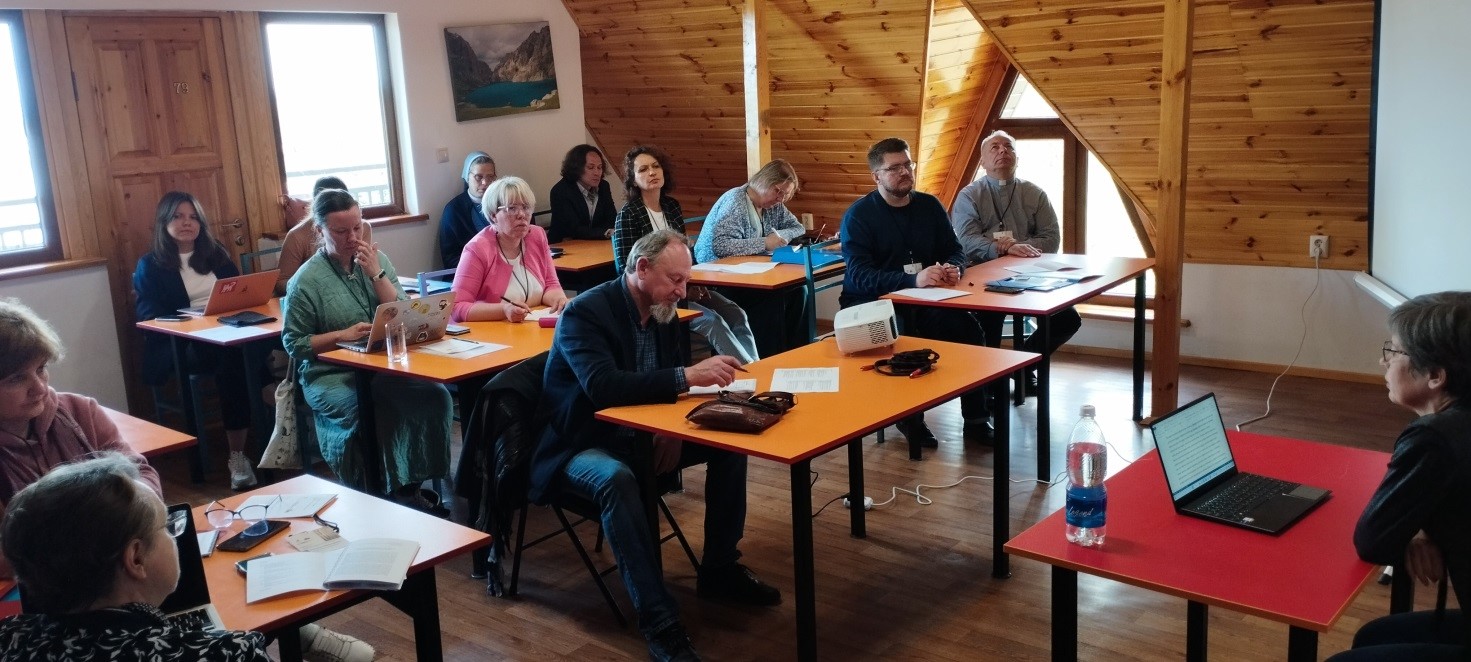The cultural commitment of Catholics in Kyrgyzstan
An international conference opens on "Philosophy of Religion in East and West" In Ženiš promoted by the Jesuits. Fr Bulowski: "It is a difficult time for dialogue between religions and cultures, but we are not discouraged".
Bishkek (AsiaNews) - An international conference on "Philosophy of Religion in the East and in the West", organised by the Svet Ljubvi Cultural-Charitable Foundation, "The Light of Love", and animated by the Jesuit community in the country, is being held in Ženiš, Kyrgyzstan, from 21 to 25 May.
The "John Paul II" Faculty of Philosophy in Cracow, with the Chair of Russian and Byzantine Philosophy, and also the UNESCO Chair for the Study of World Cultures and Religions, of the Russian-Kyrgyz Slavic University "Boris Eltsyn", are contributing to the conference.
It is one of the initiatives of the small but lively Catholic community in Kyrgyzstan, entrusted to the missionaries of the Society of Jesus from various countries around the world. Several sessions of the Theological School have already been held over the past year, beginning in the summer of 2022, with dozens of participants from Kyrgyzstan, but also from Uzbekistan and Kazakhstan. Lectures and meetings are normally held in Russian, with parts in German and Polish, the languages of the Catholic diaspora in these lands, but also open to the use of local languages.
In-depth studies on the history of Christianity in Central Asia are offered, as well as introductions to biblical, moral and dogmatic theology. The lecturers are Russian-speaking Jesuits from the Roman formation of the Pontifical Oriental Institute, such as the young Pole Fr Rafal Bulowski, but also from the mission carried out for several years in Moscow and Siberia, such as the Mexican Fr Tomas Garcia or the American Fr Anthony Corcoran, apostolic administrator for the whole of Kyrgyzstan, the latter formerly directors of the St Thomas Aquinas Moscow Institute of Theology and Philosophy. From Almaty, the American Church historian Kevin Wight, who teaches at the local university, comes regularly.
As Father Bulowski says, 'it is a difficult time for dialogue between religions and cultures, but we are not discouraged'. The main purpose of these schools and conferences is to give local Catholics a voice, offering them an academic, intellectual and confrontational experience on such important topics.
Many 'round tables' are held for exchanging impressions and reflections, also stimulated by meetings with many representatives of the traditions and cultures of Asian peoples, and there are also spaces for common prayer, coexistence and charitable service to young people and children. It is also important to bring together Catholics from different locations and different countries in Central Asia, who live in very different conditions, depending on different structures and events.
The main centre where these initiatives take place is the beautiful area of Issyk-Kul, a salt lake (the name means 'warm lake'), a huge body of water between the mountains, where the Jesuits have opened a 'Rehabilitation Centre' for children in the village of Ženiš to help orphans, invalids and children of poor families.
Together with the children and educators, many groups meet here, not only students and conference participants, but also young people and other groups who gather for periods of spirituality and common holidays.
The Centre is 100 metres from the shores of the lake, which appears like a real sea due to its large size and exceptional depth (over 700 metres), even though it is on high ground at 1600 metres above sea level, with large forests and glaciers on the Tyan-Shan mountain. It is therefore a very popular location in both summer and winter, and the almost 100 children living in the centre pay no fees for this privilege.
Last summer, the first Kyrgyzstan 'Catholic Youth Festival' was also held in Ženiš, with participants from neighbouring countries and even from Russian Siberia, a long-awaited and repeatedly postponed gathering during the pandemic period.
More than 60 boys and girls reflected together on "Christian identity" and belonging to the Church, in working groups in which many projects to be implemented in their own communities and areas of origin were discussed, both in terms of charitable service and cultural dialogue. New opportunities to meet are expected in the coming hot months, driven by the hope of a new life for Central Asia and the local Catholic Church.
09/12/2021 09:33







.png)










